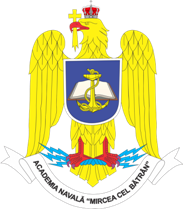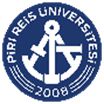
Partners

RNA – Romanian Naval Academy - Academia Navala "Mircea cel Batran" (E10093117 - Romania)
Mircea cel Batran Naval Academy (MBNA) is an accredited higher education institution in Romania for the maritime officers and specialists for maritime and port industry, both civilian and military. MBNA has its foundation roots in 1872 in ancestor Fleet School, its present value being certified by the Romanian Agency for Quality in Higher Education with highest level of trust, and by different international bodies as high-quality academic institution (e.g. European University Association, IAMU, EMSA, U-Multirank etc).
MBNA is certified since 2003 in its Quality Management System by Bureau Veritas, based on ISO 9001/2008. The educational offer is focused both on academic (undergraduates and postgraduates programs) and training programs, in field of navigation, naval electro-mechanics, electric engineering, port management and operations, naval equipment and automation, sustainable development and marine environment, counting an average number of 2.500 students and 80 teaching staff core. The educational programs and the training courses on vocational dimension are accredited by the national and international authorities and are developed under ISO 9001/2015 standards.
MBNA has the operational capacity to provide a wide range of didactic resources for setting up and developing training courses, providing specialized staff and a rich operational endowment, consisting in classes, integrated laboratories, simulators or educational on-line resources and platforms. As academic facilities, MBNA has more than 60 simulators, laboratories, offices and specialized rooms with appropriate modern equipment, a Training Ships Formation (including the Training Ship "Mircea", motorboats and training crafts), a Training Center for Seamanship and Nautical Sports, a Damage Control Centre, an ITC Center, a department of micro-production and practical training, and also a modern sport complex.
The research and development programs in MBNA are carried out in compliance with the general EU and national framework, covering a wide range of subjects, in field of naval equipment and technology or maritime and port industry. MBNA has developed two major interdisciplinary research centers: Research Centre in Marine Engineering and second, in Naval Engineering and Management. Most relevant results were achieved in several significant area of knowledge as electrical engineering and automation filed, mechanical engineering, sustainable development technologies and maritime networks development. MBNA has been granted both with national funds (under National Plan for Research or Sectorial Initiatives) and European funds, under ESF (Cohesion Structural Funds – Human Resources Capacity), ERDF-RoBg Cross Border Programme, ENPI/IPA programme, or EEA grants on Romanian-Norwegian Programme, where MBNA has been involved as coordinator or project partner in international consortium. Developing such training and research facilities for maritime body of knowledge MBNA has become a relevant educational and research institution in the Black Sea area, availing its services in applied research programs for naval and port industry. Counting on its laboratories, simulators and research centers, as on its valuable human resources, MBNA is ready and capable to contribute in innovation and scientific research in different areas of knowledge defined by the maritime industry.

PRU – Piri Reis University - T. C. Piri Reis Universitesi (E10105404 - Turkye)
PiriReis University was founded by the support and sponsorship of the whole maritime sector (almost 9000 stakeholders), namely the Turkish Chamber of Shipping (TCS), through the Turkish Maritime Education Foundation (TUDEV) as Maritime University. TÜDEV, forming the core of PRU, has a very successful history of training of seafarers and EU Projects since 1993 to bring the Turkish Shipping Sector to the world-class standards and to establish maritime policies and identify targets that will enhance the economic power, welfare and efficiency of the country in this area as well as to train professional personnel and opening and operating special training institutions for the interested persons to have a career or assisting the educational institutions on maritime to be opened and improve their capabilities in terms of facilities and education with a goal to promote the Turkish Shipping Industry.
There are 5 faculties, prep school for languages, vocational higher school, continuous education centre, graduate school of social sciences, graduate school of science and engineering; delivering higher education in 3 cycle degrees (BS, Ms, and PhD) in 24 different programs and, associate degrees in 10 different programs. An agreement for PiriReis University to provide maritime education within the framework of international standards and at the highest level had been signed in 2018 with the Qatari Emiri Armed Forces. In accordance with this agreement, in February 2019, PiriReis University has started to provide 6-year educational services in the setting up, management and education and training of the Qatari Emiri Naval Forces affiliate Academy (Naval Military College), which is comprised of 4 programs.
There are totally 210 permanent full-time academic staff, 100 admin staff and over 4000 full-time degree students including students from foreign countries. Approximately 600 professionals are attending professional development courses at the continuous vocational education centre of the university at various ranks and seniority in different times of the year. PRU through its scientific and academic background, consolidated experience in direct management of maritime scientific and vocational education and close links with stakeholders will play a major role in the project to ensure the quality of the action and to set up theoretical and practical testing of the programme. Its scientific and academic background will be also made available in building the training programme. The consolidated links with maritime stakeholders and institutions will provide direct feedback to test the project products and to disseminate and exploit the project results. It will play a key role on dissemination through its close relationship with the Turkish Chamber of Shipping.
The research and development programs are carried out in compliance with the general EU and national framework, covering a wide range of subjects in all fields of marine sciences, technology, engineering, law, and economics and administrative sciences. Technology Transfer Office at Technopark Istanbul maintains contacts with different parts of the industry. The establishment of a new incubation center is also in progress to support researchers through dedicated mentoring and investors.

UAEGEAN – Aegean University - PANEPISTIMIO AIGAIOU (E10208624 - Greece
The University of the Aegean (UAegean) is dedicated to conducting high level research and qualitative teaching on contemporary dynamic study subjects serving the economic and social development of the country, the cohesion of the European area and the values of a universal culture, of which the Archipelagos is an integral part.
(Re) founded in 1984, the UAegean aims to introduce new approaches in tertiary education and promote regional development through innovative educational programs and interdisciplinary fields of study and research. The decision to develop in more than one University Units is based on firm strategic and geopolitical criteria.
The twofold aim of UAegean, i.e. focusing on academic excellence and development and unifying the geographically fragmented and culturally diverse Aegean area, with respect to its particular features, has been accomplished through the effective organisation and interconnection of academic and administrative units and the standardization of required proceducres via the use of ICTs and the multifarious connection and mutual support to local communities and their agencies.

NVNA – Bulgarian Naval Academy - “Nikola Y. Vaptsarov” Naval Academy (E10108590 - Bulgaria)
The "Nikola Y. Vaptsarov" Naval Academy of Varna is the only higher education institution in Bulgaria for the maritime officers and managers, both civilian and military. It delivers 3- cycle study programmes in the field of maritime transportation, management and security & defense. The Bulgarian Naval Academy has about 3,500 students overall and a professional teaching and research staff. Scientific research is focused on all areas of the maritime industry, thus including the maritime/naval leadership topics.

CRPM – CONFERENCE DES REGIONS PERIPHERIQUES MARITIMES D EUROPE (E10266207 – France)
The Conference of Peripheral Maritime Regions brings together more than 150 Regions from 24 States from the European Union and beyond.
Representing about 200 million people, the CPMR campaigns in favour of a more balanced development of the European territory. It operates both as a think tank and as a lobbyfor Regions.
Through its extensive network of contacts within the EU institutions and national governments the CPMR has,since its creation in 1973, been targeting its action towards ensuring that the needs and interests of its Member Regions are taken into account in policies with a highterritorial impact.
It focuses mainly on social, economic and territorial cohesion, maritime policies and blue growth, and accessibility. European governance, energy and climatechange, neighbourhood and development also representimportant areas of activity for the association.

